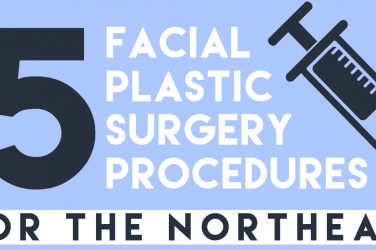Continuing Medical Education is an essential component of a healthcare professional’s career. It refers to any educational activity or program that helps healthcare providers maintain, develop, or enhance their knowledge, skills, and professional performance. CME is a crucial part of a healthcare professional’s career as it helps them keep up with new developments in their field, learn about new treatments and technologies, and maintain their competency.
Why is Continuing Medical Education important?
Healthcare professionals are responsible for providing quality care to patients, and continuing medical education is critical in ensuring that they can do so. The medical field is constantly evolving, and discoveries are made daily. Continuing medical education helps healthcare professionals stay up-to-date with the latest advances in their field, ensuring they provide the best possible care to their patients.
Continuing medical education is also essential for maintaining and enhancing professional competency. Medical knowledge and skills are perishable, and without ongoing education and training, healthcare professionals may be unable to provide their patients with the highest quality of care. CME helps professionals maintain their clinical and professional competencies, which is vital for ensuring they can provide safe and effective patient care.
Furthermore, continuing medical education is essential for healthcare professionals to maintain their licensure and certification. Many healthcare professions require a certain number of CME hours yearly to maintain their license or certification. Without completing these requirements, healthcare professionals risk losing their license or certification, which could negatively impact their careers and ability to care for patients.
Benefits of Continuing Medical Education
Continuing medical education has numerous benefits for healthcare professionals. Here are some of the most significant benefits of continuing medical education:
Improves Patient Care: The primary goal of continuing medical education is to improve patient care. By staying up-to-date with the latest developments in their field, healthcare professionals can provide the best possible care to their patients, resulting in improved health outcomes.
Enhances Professional Competency: Continuing medical education helps healthcare professionals maintain and enhance their professional competencies, ensuring they can provide safe and effective patient care.
Increases Career Opportunities: Healthcare professionals who have completed CME programs are more likely to be considered for promotions or new job opportunities. Employers often look for healthcare professionals committed to ongoing education and professional development.
Improves Professional Reputation: Continuing medical education can help healthcare professionals build a strong reputation. By staying up-to-date with the latest developments in their field, healthcare professionals can establish themselves as experts in their practice area.
Reduces the Risk of Malpractice: By maintaining their clinical and professional competencies, healthcare professionals can reduce malpractice risk. They are better equipped to provide safe and effective care to their patients.
Continuing Medical Education programs are offered in various formats to meet healthcare professionals’ diverse learning needs. The types of CME programs can include conferences, workshops, online courses, and self-study programs.
Conferences and workshops are typically held in person and allow healthcare professionals to interact with colleagues and experts in their field. Depending on the program’s scope, these programs may be a one-day event or last several days. They can cover various topics and offer hands-on experience, case-based discussions, and live demonstrations.
Online courses are another popular format for CME programs. These courses can be accessed from anywhere with an internet connection, making them convenient for healthcare professionals who cannot travel to attend in-person events. Online courses may include interactive content such as videos, quizzes, and discussion forums, allowing learners to engage with the material and other participants.
Self-study programs are typically offered in various formats, such as books, videos, podcasts, and interactive modules. These programs are designed for healthcare professionals who prefer to learn at their own pace and on their schedule. Self-study programs can be helpful for those who have a busy schedule or prefer to learn independently.
Technology has transformed the way healthcare professionals access and participate in CME programs. The development of digital technologies, such as video conferencing, online learning platforms, and mobile applications, has made it easier for healthcare professionals to participate in CME programs from anywhere in the world.
Virtual conferences and webinars have become increasingly popular in recent years. These online events offer many of the same benefits as in-person conferences and workshops, such as networking opportunities and access to expert speakers, but without the need to travel. It benefits healthcare professionals with limited travel budgets or who cannot attend in-person events due to other commitments.
Attending medical conferences is an excellent way for healthcare professionals to expand their knowledge and stay up-to-date with the latest developments in their field. One site that provides access to a range of CME medical conferences is Coat Connect. This site offers a platform for healthcare professionals to search for and register for conferences that match their learning needs and preferences. It provides a convenient and easy-to-use platform that allows healthcare professionals to explore a variety of medical conferences from different parts of the world. By attending medical conferences through Coatconnect.com, healthcare professionals can expand their network, gain exposure to new ideas and technologies, and ultimately improve the quality of care they provide.
In conclusion, continuing medical education is vital to a healthcare professional’s career. It is essential for maintaining and enhancing professional competency, improving patient care, and staying up-to-date with the latest developments in the medical field. CME also has numerous benefits for healthcare professionals, including increased career opportunities, improved professional reputation, and reduced malpractice risk. As such, healthcare professionals should prioritize continuing medical education throughout their careers to ensure they provide the best possible care to their patients.







